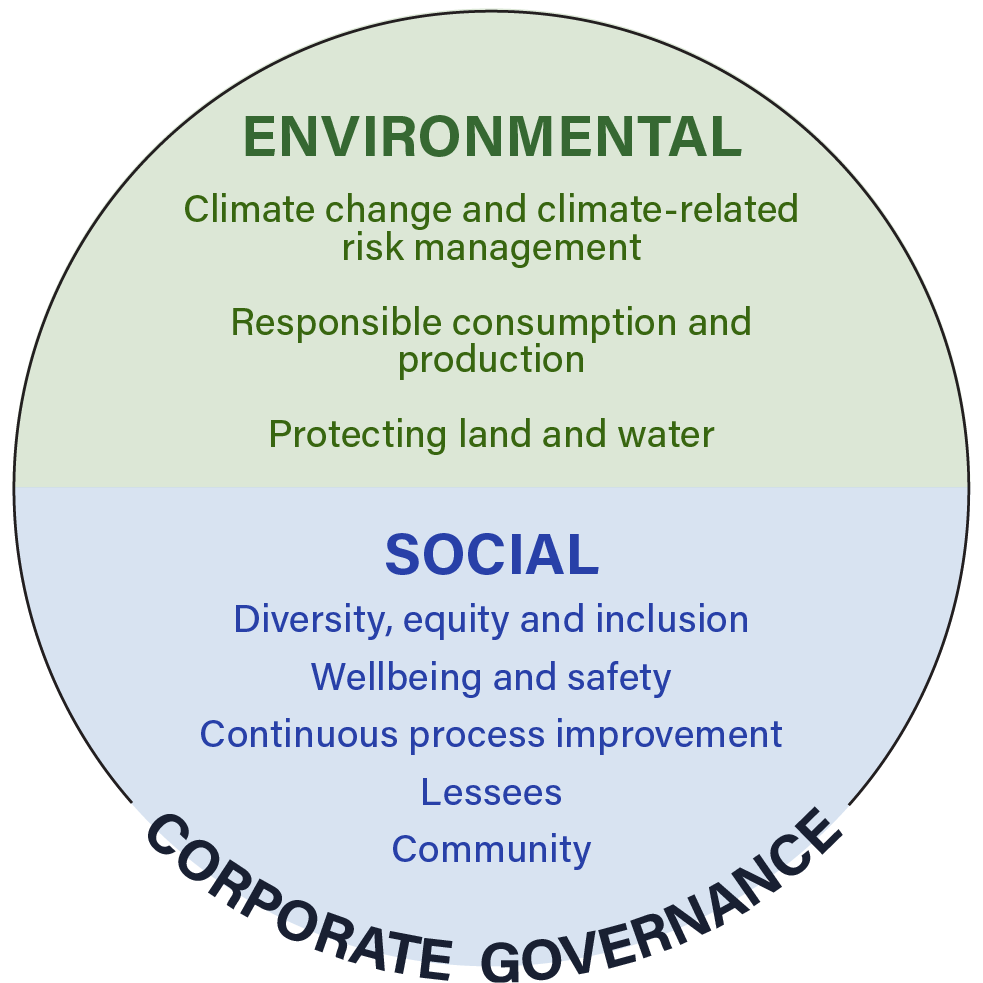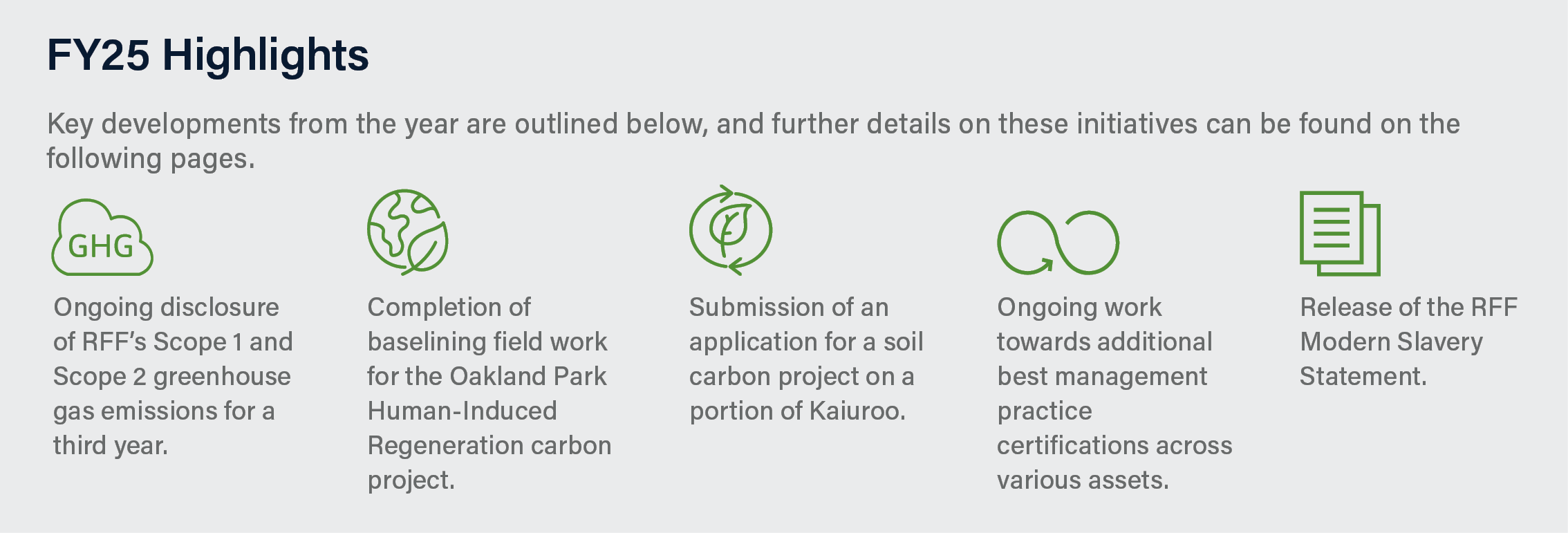-
Sustainability
ON THIS PAGE:
Sustainability
Rural Funds Management (RFM) seeks to operate in a sustainable manner by considering the impact of its activities on the environment, the people within the business and the local communities where we operate.
A core principle of RFM’s approach to sustainability is to prioritise operational efficiency to align with the goal to ‘produce more with less’, thereby enhancing productivity while reducing resource consumption per unit of output.
RFM’s Sustainability Policy outlines our commitment and approach to sustainability, with the areas of focus as shown in the Sustainability Policy framework.
RFM Sustainability Policy framework

Effective governance is another important element of sustainability, please refer to the Corporate Governance Statement for further information on this aspect.
Rural Funds Group (ASX: RFF), as an externally managed fund, adopts the Sustainability Policy of the Responsible Entity, RFM.

During FY25, RFM continued to progress various RFF sustainability initiatives, which are detailed in the RFF Annual Report including:
- Climate related disclosures
- Emissions disclosure
- Responsible consumption and production:
o New cotton growing techniques – ‘grown on’ cotton
o Data-driven orchard management – permanent sample plots
o Macadamia phosphorous trial
- Protecting land and water:
o Best management practices – Hort360 Reef certification, MyBMP certification, Bee friendly farming
o Valuing natural capital – Tocabil Sandhill Pine Woodlands Restoration project update
- Technology and precision:
o Autonomous tractor
o Cattle automated water supplementation system
- Carbon farming projects and initiatives:
o Kaiuroo soil carbon project
o National soil carbon innovation challenge
o Oakland Park human induced regeneration project
- Social:
o Culture
o Wellbeing and safety
o Diversity, Equity and Inclusion
o Continuous improvement – human capital development, system investments
o Community - health and wellbeing initiatives, skills and careers in agriculture, environmental stewardship, community connections and promoting safety and social awareness
Various other publications provide updates on other sustainability related topics, such as those available on the Resources page.









%20low%20res.jpg)






